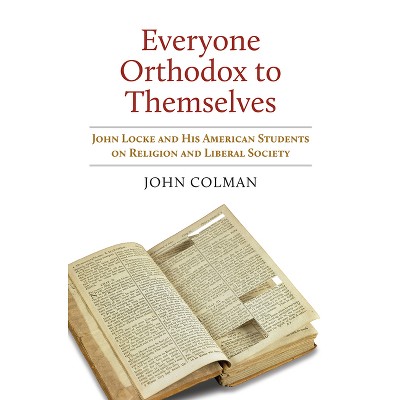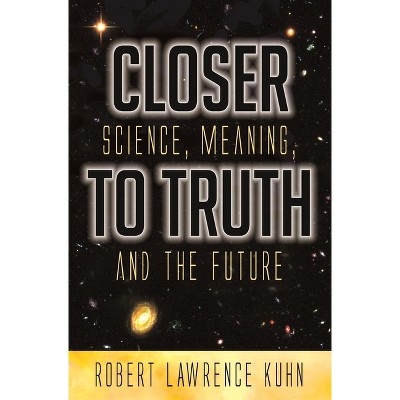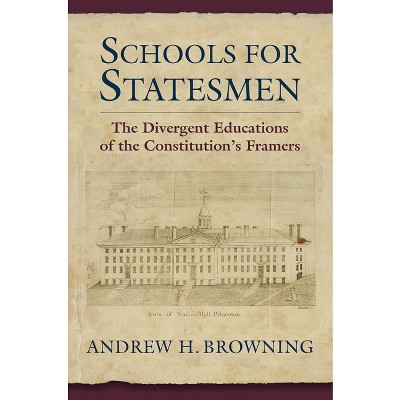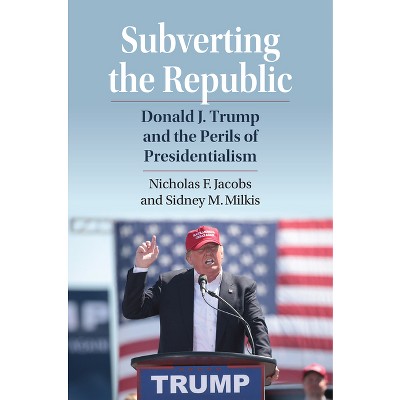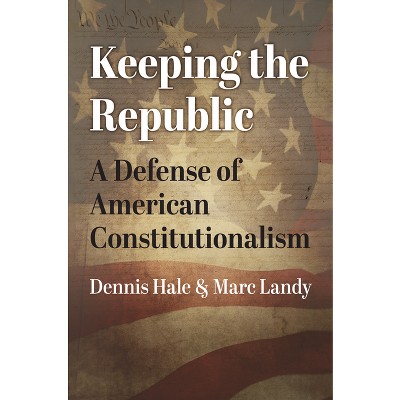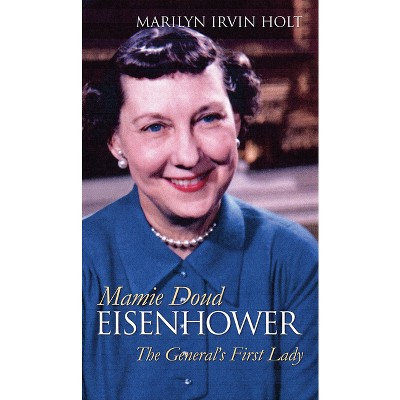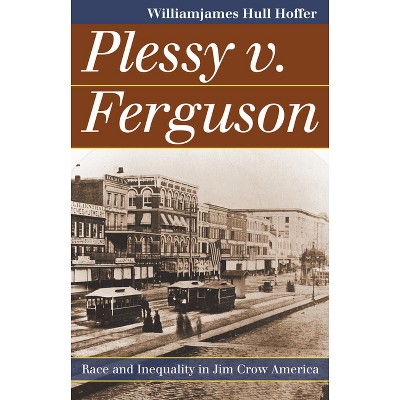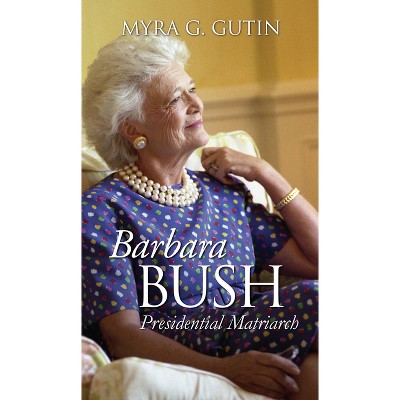Sponsored

Rescuing the Republic - by Andrew H Browning (Hardcover)
In Stock
Sponsored
About this item
Highlights
- The first examination of how James Madison and the Annapolis Convention defied all odds and expectations to begin the near-impossible process of restructuring the federal government and worked to bring the republic back from the brink of collapse.Although many books address the who, what, and why of the Constitution's framing, not one explains the how of calling the Constitutional Convention--how a convention that seemed patently forbidden by the Articles of Confederation, and appeared so impossible to Alexander Hamilton that he quit Congress in despair of ever seeing one called, could have gathered enough support over a few months to be attended by every state but one.Resolving that conundrum is the aim of Rescuing the Republic.
- Author(s): Andrew H Browning
- 272 Pages
- History, United States
Description
About the Book
The first examination of how James Madison and the Annapolis Convention defied odds and expectations to begin the near-impossible process of restructuring the federal government and worked to bring the republic back from the brink of collapse.
Book Synopsis
The first examination of how James Madison and the Annapolis Convention defied all odds and expectations to begin the near-impossible process of restructuring the federal government and worked to bring the republic back from the brink of collapse.
Although many books address the who, what, and why of the Constitution's framing, not one explains the how of calling the Constitutional Convention--how a convention that seemed patently forbidden by the Articles of Confederation, and appeared so impossible to Alexander Hamilton that he quit Congress in despair of ever seeing one called, could have gathered enough support over a few months to be attended by every state but one.
Resolving that conundrum is the aim of Rescuing the Republic. Andrew Browning sets the stage with an explanation of the fatal flaws in the Articles of Confederation that were becoming apparent in the early years of American independence. He then explains how Madison--with the support of Washington and late assistance from Hamilton--built on the surprising success of the Mount Vernon Conference to arrange the widely misunderstood Annapolis Convention. Just as the decade-old Union was threatening to dissolve, that convention's "stealth" success enabled Madison to overcome the previously insurmountable obstacles to restructuring the federal government. Far from being the "fiasco" it has been called, the Annapolis Convention is shown to have been the essential springboard to the Constitutional Convention. Circumventing populist demagogues and extreme advocates of states' rights, it made possible what Madison called the "rescue of the Union, and the blessings of liberty staked on it, from an impending catastrophe."
At a time when Americans are once again strongly divided over their vision of the country, Browning's lucid study is a reminder of the deep roots of resistance to a truly national government--and of the risks inherent in returning to a confederation of quasi-sovereign states.
Review Quotes
"Andrew Browning has written another smart, engaging, and detailed book about the American founding. With his flair for dissecting eighteenth-century American English, he reconstitutes the political consciousness of a fraught moment, encompassing a wide range of personalities and revealing the interplay of states. Drawing on a wealth of original sources, he recreates the conditions that led to the Annapolis and Philadelphia conventions, amid fears that the US could sink into 'Anarchy & Confusion.' A republic was by no means assured, as this robust, well-argued study bears out."--Andrew Burstein, coauthor of The Problem of Democracy: The Presidents Adams Confront the Cult of Personality
"Rescuing the Republic tells with verve the story of how thirteen hitherto-sovereign states, which were only loosely allied under the Articles of Confederation, were ultimately able to 'form a more perfect union' through the creation of a new, more robust Constitution. Browning shows that the Annapolis Convention of 1786, in particular, was an essential springboard for the Philadelphia Convention, rather than the embarrassing failure that it is so often taken to have been."--Dennis C. Rasmussen, author of The Constitution's Penman: Gouverneur Morris and the Creation of America's Basic Charter
"Drawing deftly and engagingly from voluminous primary and secondary sources about dozens of central players in all of the thirteen original states, Browning tells a gripping story about the origins of the US Constitution. He offers a definitive account of how James Madison and others engineered the Annapolis Convention to bypass the 'imbecilic' Congress under the Articles of Confederation, where proposed amendments had floundered on its unanimity requirement, and call a convention that successfully drafted a new constitution to rescue the fledgling republic by replacing the Articles' 'rope of sand' with a more perfect union."--John R. Vile, author of The Constitutional Convention of 1787: A Comprehensive Encyclopedia of America's Founding
"Relying principally on primary sources, Andrew Browning adroitly demonstrates how James Madison, in and out of Congress, allied with a handful of likeminded nationalists such as George Washington and Gouverneur Morris, rescued the United States from the fatal flaws in the Articles of Confederation while preserving the blessings of liberty and avoiding the disaster of disunion. Madison moved steadfastly forward incrementally with the Mount Vernon conference, the Annapolis Convention, and the Confederation Congress's endorsement of the Constitutional Convention of 1787. Without Madison's undaunted perseverance, the republic would not have been rescued from a variety of impending catastrophes."--John P. Kaminski, author of The Great Virginia Triumvirate: George Washington, Thomas Jefferson, and James Madison in the Eyes of Their Contemporaries
"Mapping the uneven path that carried American revolutionary leaders to the Constitutional Convention of 1787 is a task that has long fascinated historians. In this sprightly narrative, Andrew Browning retraces that path with its many twists and turns and its surprising outcome. In the process, he reminds us how crucial was the partnership between James Madison, our greatest constitutionalist, and George Washington, the nation's most ardent nationalist."--Jack N. Rakove, author of Revolutionaries: A New History of the Invention of America
"This impressive book explores some of the gaps in our national founding story. Browning has not only offered new perspectives on James Madison, no small feat when it comes to the often-studied founder, but has also told many small stories of other founders who are frequently forgotten. The story of how a push for amendments turned into a constitutional convention is critical for understanding the founding era more generally, and Browning has told that story well."--Michael J. Faber, author of An Anti-Federalist Constitution: The Development of Dissent in the Ratification Debates
Shipping details
Return details
Frequently bought together


Trending Non-Fiction






